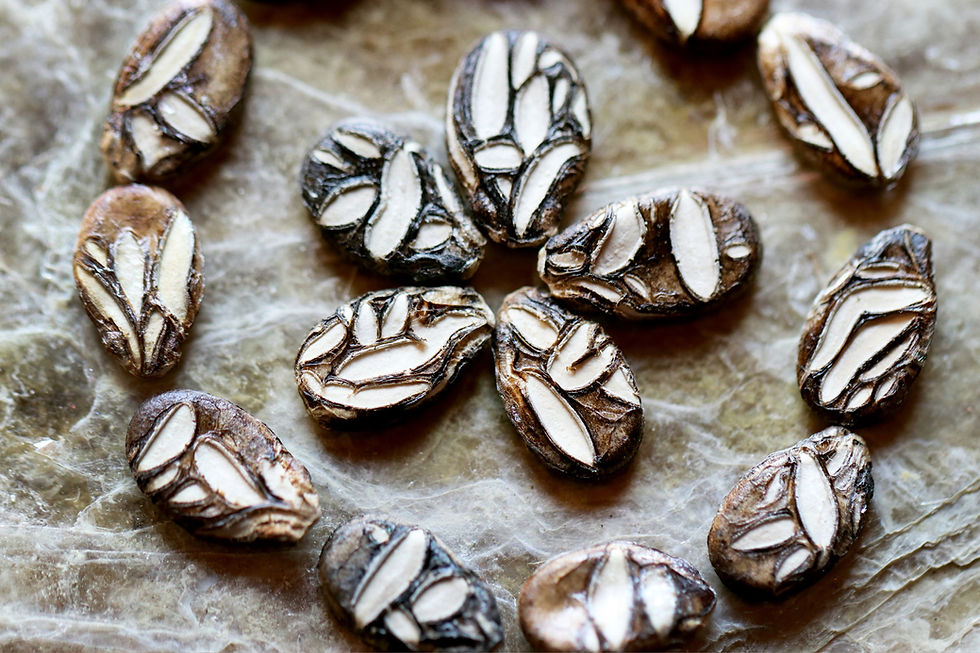By: Nayka Vaughn (president of East Food Gardens)

Hey there my little seeds!!!!
Busy Busy Busy I have been, but one thing i seem to always have time for is reading informational books to gain more and more knowledge about seed sovereignty, native farming techniques and the history behind Heirloom Seeds. I stumbled across these books and finally got a chance to take a look and indulge. And I am very happy I did! There are so many layers to the farming industry when it comes to seed saving, regenerative farming, no till farming, natural fertilizers and preserving the history of the ones that have come before us. I have given a brief summary of both books and I hope it encourages you all to start saving your own seeds and doing the research yourself. So many plant varieties have been lost over the last 60 years and a lot of farmer and cooperatives are coming together in the fight to save native and heirloom seeds from extinction.
Welp! I hope you enjoy!

Buffalobird-Woman, also known as Maxidiwiac, was a Native American Hidatsa woman who lived in the late 19th and early 20th centuries. She was born around 1839 in what is now North Dakota, USA. She became renowned for her extensive knowledge of Hidatsa agricultural practices, especially related to corn cultivation, and her experiences were recorded in this book titled "Buffalo Bird Woman's Garden: Agriculture of the Hidatsa Indians," which was published in 1917.
Buffalobird-Woman grew up in a traditional Hidatsa community, where she learned the techniques of planting, cultivating, and harvesting crops such as corn, beans, and squash. These agricultural practices were vital to her tribe's survival, as they relied on farming alongside hunting and gathering. Her insights into the complex interplay between the environment, weather, and plant cycles provided valuable lessons about sustainable agriculture.

The book "Buffalo Bird Woman's Garden" was the result of anthropologist Gilbert L. Wilson's conversations with Buffalobird-Woman in the early 20th century. In the book, she shared her knowledge of planting techniques, crop varieties, and the cultural significance of agriculture in Hidatsa society. The book serves as a valuable historical record, offering insights into indigenous farming practices and the deep connection between Native American communities and the land.

Buffalobird-Woman's story and the knowledge she shared have contributed to a better understanding of indigenous agricultural methods and their importance to the cultural and ecological landscape of North America. Her legacy lives on as a testament to the wisdom and resilience of Native American communities and their intimate relationship with the natural world.

WAIT!!!!!!!!!!!!!!!!!!! THERES MORE

Plant heritage, organic seed production, and seed saving encompass a wealth of wisdom that is rooted in sustainable agricultural practices and a deep understanding of the natural world. Here are some key aspects of their wisdom:
1. **Biodiversity Conservation:** Plant heritage involves preserving and passing down traditional, heirloom, and indigenous plant varieties. This wisdom recognizes the importance of maintaining a diverse range of crops, which helps guard against the loss of genetic diversity and supports ecological balance.
2. **Adaptation to Local Conditions:** Organic seed production and saving emphasize the value of selecting and saving seeds from plants that thrive in local environments. This wisdom acknowledges that over generations, plants adapt to the specific conditions of a region, leading to stronger and more resilient crops.

3. **Cultural Resilience:** Plant heritage embodies cultural wisdom by honoring ancestral knowledge and the stories behind specific plant varieties. Saving and producing organic seeds from traditional crops maintain connections to cultural identities and histories.
4. **Sustainability and Self-Reliance:** The wisdom of organic seed production and saving aligns with sustainable agriculture principles. By growing and saving seeds on a smaller scale, communities can reduce their reliance on external seed sources and synthetic inputs, fostering self-sufficiency.
5. **Holistic Ecosystem Understanding:** The practice of seed saving is deeply rooted in understanding ecosystems as interconnected systems. This wisdom recognizes the intricate relationships between plants, pollinators, soil microorganisms, and the environment, promoting holistic approaches to farming.
6. **Preservation of Taste and Nutrition:** Many heirloom and traditional varieties have distinct flavors, textures, and nutritional profiles. The wisdom of organic seed saving values the preservation of these qualities, contributing to diverse and nutrient-rich diets.
7. **Respect for Nature's Rhythms:** Seed saving and organic seed production honor the natural cycles of plant growth, reproduction, and regeneration. This wisdom emphasizes working in harmony with nature rather than against it.
8. **Educational Value:** The practice of saving and producing organic seeds offers opportunities for education and knowledge-sharing. This wisdom helps pass down practical skills, traditional farming techniques, and ecological insights to future generations.
9. **Resisting Industrial Agriculture:** Organic seed saving challenges the dominance of industrial agriculture, which often relies on uniform, genetically modified seeds. This wisdom highlights the importance of promoting alternatives that prioritize sustainability and resilience.
10. **Seed Sovereignty:** Seed saving embodies the wisdom of maintaining control over seed resources, fostering seed sovereignty within communities. This principle asserts the right of farmers and communities to save, share, and develop their own seeds.

In summary, plant heritage, organic seed production, and seed saving embody a holistic understanding of agriculture that integrates cultural, ecological, and ethical considerations. These practices are a testament to the enduring wisdom of traditional knowledge and the value of nurturing a harmonious relationship with the natural world.
Both of the book I found on Thiftybooks.com

Comments